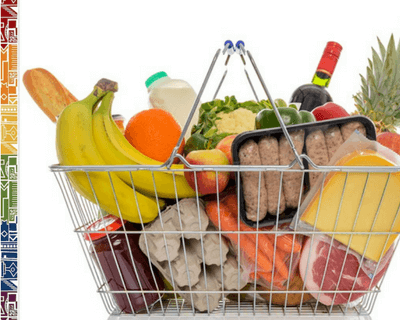Covid-19 in South Africa: The National State of Disaster has been lifted as from 5 April 2022.
South Africa Banking
Banking in South Africa | Expat Banking | Banks in South Africa
In South Africa banking is as easily done as in many developed countries overseas. As an expat moving to South Africa, you will need to find the best banking facilities for your specific requirements and personal needs. To get an overview about banking in South Africa, please see our answers to the most common questions we receive at ExpatCapeTown.
For detailed information about the various products and interests the local banks offer to foreigners, please refer to the banks' websites or get in contact with their private bankers. It is highly recommended to use a banker who is experienced in working with foreign clients as your South Africa banking needs will most certainly differ from those of local clients.
Which are the biggest banks in South Africa?
The four biggest banking institutions in South Africa are:
Other banks offering a variety of financial services in South Africa are:
and various registered foreign banks. Find more banks who are registered with The Banking Association of South Africa refer to the listing on its website.
These banks offer a vast array of financial services to locals and foreign residents in South Africa. On all of the South Africa banking websites, you will find branch locators to locate a branch convenient for you. As there are only around 2 million Muslims living in South Africa, Islamic Banking options are available for Muslim clients at the following banks:
What are the banking hours in South Africa?
Opening hours of South African banks vary. However, most of the financial institutions refer to these South Africa banking hours:
- Monday to Friday: 8h30 until 15h30
- Saturday: 8h30 until 11h30
- Sunday/Public Holiday: closed
Please always check the banking hours which are also displayed at your bank's local branch and be aware that opening times might change occasionally due to staff meetings or training sessions. Banks located at the airports, main train stations and in major shopping malls generally have extended opening hours.
Are there foreign exchange bureaux?
The big banks in South Africa all offer Forex transaction facilities. You will find also specialised foreign exchange bureaux dealing with transactions in foreign currencies, such as telegraphic transfers or cashing of traveller's cheques, in major shopping malls and at the airports. Among others companies, the following foreign exchange bureaus have branches in many locations throughout South Africa:
- Imali Express Forex
- Master Currency Foreign Exchange
- Rennies Foreign Exchange
- American Express Network
- Travelex Worldwide Money
A full listing of all authorised dealers for Forex transactions in South Africa is available from the South African Reserve Bank.
Where can I cash traveller's cheques?
In South Africa, you can cash your American Express traveller's cheques as well as Thomas Cook traveller cheques at the local banks, specialised foreign exchange bureaux as well as at some of the bigger hotels. Fees and commission usually apply. For cashing in your traveller's cheques, you need to bring your passport, your ticket and the address you are staying at in South Africa.
South Africa banking: What about after-hours banking?
After-hours-banking in South Africa can be done at ATMs (Automated Teller Machines) by using a local debit card or a local or international credit card. These ATMs are located in most Shopping Centers or petrol stations as well as inside and/or outside the South African banks' branch offices. At the South African bank's ATMs, besides cash withdrawals, you can usually also make account transfers and get recharge vouchers for your cell phone. Please exercise caution when using an ATM, as you should anywhere else in the world too, and never accept help by strangers when using the cash machines. If you think a machine has been manipulated with, contact the bank immediately. The facility provider's details are usually attached near the machine.
Can I use my credit card from overseas?
Tourists and expatriate banking customers often also carry credit cards from their banks overseas. Most local ATMs accept credit cards issued by overseas banks as long as they are supported by VISA or MasterCard, American Express, Diners, VISA-Electron or Maestro Cards. Make sure you have a pin code, even if you do not want to use an automated teller machine, as the pin number is more and more required to pay for your purchases in shops. Cards are usually not only swiped, but you need to key in your pin code as well. As further security measure you will still often need to sign the till slip. The daily withdrawal limit at ATMs or at the bank tellers is set by agreement between client and the banks and is usually ranging between R1 000 and R3 000 in South Africa.
Cash advances from overseas credit cards can usually be effected by all major banks in South Africa, commission might apply. Be also aware of the various transaction charges and not to forget the fluctuating exchange rates affecting any deals in currencies. It is highly recommended to contact the bank or card provider should you have any queries regarding the use of your international credit card in South Africa Banking. Make sure to keep your ATM slips should you need to prove origins of your money.
Which are the most common payment forms?
In South Africa the most common method of payment is by cash or bank card. Credit card and debit card payments are accepted for payment in most shops, hotels and restaurants. Many stores also offer customer cards to South African residents, which can be linked to a credit account. With store credit cards you can choose which payment method you prefer. Usually you are asked by the cashier if you want to pay 'cash'/'straight' or with the store’s card, referred to as 'credit'/'budget'/account card'. Some stores also offer reward or point cards, some of those are linked with credit facilities while others simply collect points for reward vouchers or for supporting charitable causes.
It is becoming more popular to effect payments online and transfer money via internet banking in South Africa. If you have a cheque account and want to use South African personal cheques, be advised that they are accepted by many private people and some businesses in Cape Town, however extremely rarely in shops. In this case you should have a picture ID as proof of your identity, but be to be sure you should ask ahead receiving any service. For getting information on how to pay your utility bills click here
South Africa Banking: What is a Garage Card?
For payment at garages, petrol stations and toll stations, South Africans often use special 'Garage Cards' or 'Fleet Cards', the latter only are available for company fleet cars. Garage Cards can only be used for payments at petrol stations for gasoline, diesel and petrol as well as other services offered by garages and car wash outlets as well as for road toll payment. Garage Cards are usually linked to cheque accounts and can be ordered through your bank.


